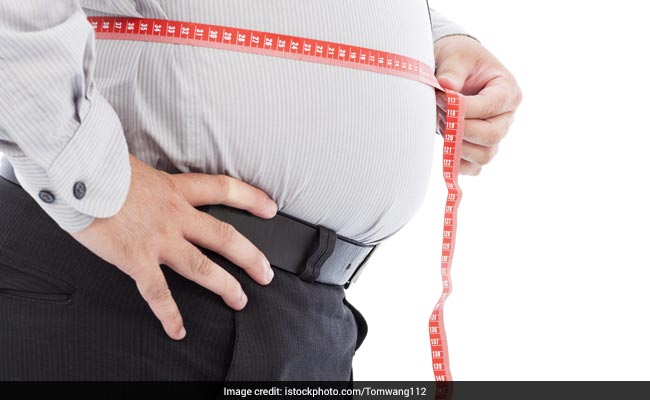A common question: difference between bloating and fat in the mirror?
Wiki Article
Why Recognizing the Distinction Between Bloating and Fat Is Important for Your Digestive System Health And Wellness
Understanding the difference between bloating and body fat is necessary for optimizing digestive system wellness. Bloating can be a measure of underlying gastrointestinal concerns or nutritional level of sensitivities, while body fat represents a more stable aspect of general health and calls for various factors to consider. Misunderstanding these 2 conditions may lead to inefficient methods that overlook the root causes of discomfort. By clarifying these differences, people can better customize their approaches to nutritional behaviors and lifestyle modifications. This expedition raises vital questions about exactly how to successfully take care of these differing facets of health and wellness.Recognizing Bloating
Several people experience bloating eventually in their lives, yet the underlying causes and implications for digestion wellness can be complicated. Bloating is defined by an experience of volume or rigidity in the abdomen, usually come with by visible distension. This condition can occur from numerous elements, including dietary selections, food poisonings, and way of living practices.Usual nutritional wrongdoers consist of high-fiber foods, carbonated drinks, and particular sugars that are badly absorbed in the intestine. Lactose intolerance can lead to bloating after eating milk products, while excessive usage of beans might activate gas manufacturing. Furthermore, overeating or eating as well promptly can exacerbate the experience of bloating, as the body has a hard time to process big amounts of food efficiently.
Intestinal problems, such as irritable digestive tract disorder (IBS) or gastric disease, can better complicate the experience of bloating, as they often entail increased level of sensitivity and impaired food digestion. Understanding the details triggers and mechanisms behind bloating is vital for efficient administration and therapy, allowing people to make enlightened dietary and way of living changes to promote optimal digestion health.
Identifying Body Fat

Recognizing the difference between bloating and body fat is vital for understanding one's total digestive system health and wellness and physical problem. Body fat refers to the adipose tissue that is kept in various areas of the body, offering as an energy book and playing important functions in hormonal agent policy and thermal insulation. It is essential to precisely recognize body fat to examine wellness dangers connected with excessive adiposity, such as cardio illness and diabetic issues.
To recognize body fat, individuals can make use of several techniques, consisting of body mass index (BMI), skinfold measurements, and bioelectrical insusceptibility analysis. BMI is a commonly used tool that associates weight and elevation; however, it may not accurately show body composition. Skinfold dimensions entail squeezing various areas of the body to determine fat thickness, while bioelectrical resistance uses electric currents to estimate body fat percentage.
Aesthetic evaluation can also contribute in recognizing body fat distribution, which can give understanding right into wellness ramifications. For example, natural fat surrounding the organs positions greater health risks compared to subcutaneous fat situated just under the skin. Comprehending these nuances is crucial for embracing proper health approaches and boosting overall wellness.

Root Causes Of Bloating
Bloating can develop from a wide range of aspects that affect the digestive system, bring about discomfort and a swollen abdominal area. One common fat vs bloating reason is the intake of air, which can happen while consuming or drinking also quickly, eating gum, or smoking cigarettes (fat vs bloating). This air buildup can produce a feeling of volume and pressureNutritional choices also play a considerable function in bloating. Certain foods, especially those high in fiber, such as beans, lentils, and cruciferous vegetables, may cause gas production during digestion. In addition, carbonated drinks can introduce excess gas right into the digestive tract.
Food intolerances and level of sensitivities, such as lactose intolerance or gluten sensitivity, are other widespread sources of bloating. When people take in foods they can not appropriately digest, it can lead to gas and discomfort.
In addition, hormonal variations, particularly in women throughout the menstruation, can contribute to bloating due to water retention and stomach changes. Finally, underlying clinical problems, such as short-tempered bowel syndrome (IBS) or stomach blockage, might additionally show up as bloating, emphasizing the importance of ideal medical diagnosis and management. Recognizing these causes is vital for effective signs and symptom management.
Effect on Digestive Wellness
Relentless bloating can considerably influence digestive system health, affecting total health and lifestyle. Bloating usually arises from the build-up of gas or fluid in the stomach tract, causing discomfort and a distended abdominal area. This problem can disrupt regular digestive procedures, hindering nutrient absorption and causing deficiencies with time.Additionally, persistent bloating may be indicative of underlying stomach problems such as short-tempered digestive tract disorder (IBS), gastric disease, or food intolerances (bloating and fat). When these conditions are left unaddressed, they can aggravate signs and cause more difficulties, consisting of bowel irregularity or diarrhea
The emotional consequences of bloating must likewise be recognized. Regular pain can add to stress and anxiety and stress concerning eating and social communications, additionally complicating one's partnership with food and food digestion.
Techniques for Administration
Efficient administration of bloating needs a complex technique that deals with nutritional habits, lifestyle changes, and potential medical treatments. At first, individuals ought to examine their diet regimens, determining and removing common triggers such as dairy products, gluten, and high-FODMAP foods, which are recognized to add to gas and discomfort. Including fiber gradually can boost digestive health, yet extreme fiber intake ought to be avoided, as it might aggravate bloating.
Stress management methods, including mindfulness and deep-breathing workouts, can also play a significant role. bloating vs fat. Tension is understood to effect gastrointestinal function negatively, bring about increased bloating
If way of living and nutritional alterations do not generate relief, seeking advice from a healthcare expert is recommended. They may advise analysis examinations to dismiss hidden conditions such as Irritable Digestive Tract Syndrome (IBS) or food intolerances. In many cases, medicines or supplements might be recommended to minimize signs properly, ensuring a detailed strategy to taking care of bloating.
Final Thought
In final thought, distinguishing in between bloating and body fat is essential for advertising gastrointestinal health. Bloating, frequently resulting from nutritional options or gastrointestinal concerns, needs targeted interventions to reduce discomfort.Report this wiki page